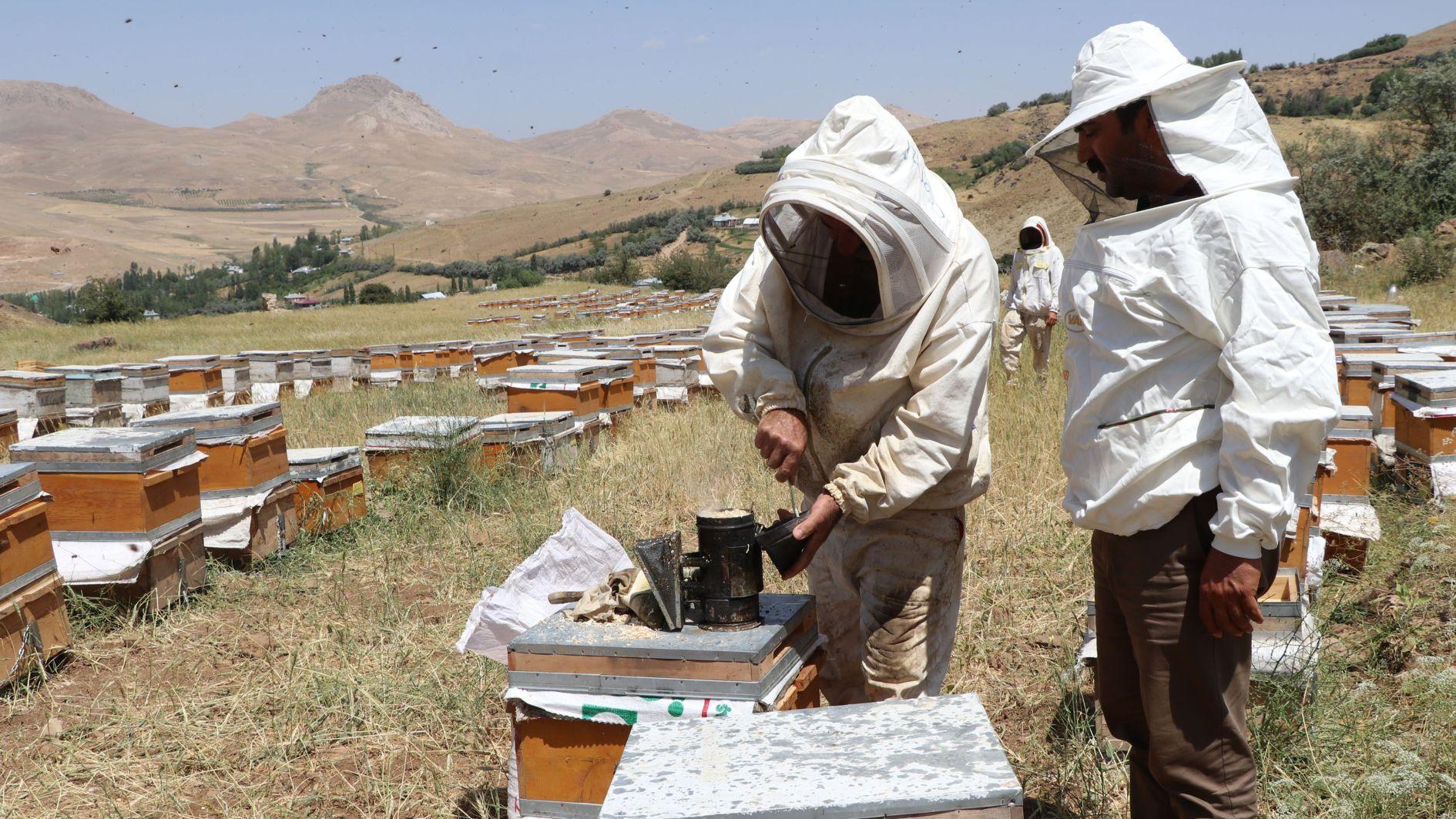
As part of the ApiTURroute Project, Türkiye's specially designated beekeeping routes are expected to enhance tourism across the country by blending eco-tourism and local biodiversity awareness.
Presented during an event in the northwestern city of Edirne, the initiative invites visitors to explore beekeeping practices through curated travel experiences that highlight the importance of local production.
Offering an alternative type of tourism, this newly emerging tourism type involves activities such as observing bees, experiencing beekeeping practices and tasting apicultural products.
Speaking at the event, Professor Dr. Aslı Özkırım, the manager of Hacettepe University’s bee and bee products research center, highlighted that Türkiye ranks second in the world in beekeeping and is home to a wide variety of honeybees and honey types.
“We often associate bees only with honey, but we need to be aware of their vital role in pollination and biodiversity. Around 75 percent of the fruits and vegetables you eat for breakfast exist thanks to bees,” Özkırım noted.
She emphasized the need to show consumers the ecological importance of bees in their natural environment.
In line with this objective, the project has established routes in the Thrace region, the southwestern province of Muğla, the northeastern provinces of Kars and Ardahan, the Black Sea city of Artvin, the eastern provinces of Tunceli, Erzincan and Bingöl and the northwestern province of Balıkesir.
“We take groups of 15 people, equip them with beekeeping masks and gloves, and give them a hands-on experience in the apiaries,” she said.
Participants, often professionals such as office workers, doctors and lawyers seeking a break from urban life, get to observe the challenges faced by beekeepers and learn about local products.
For instance, those visiting the Thrace route are introduced to oak honey and canola pollen, and they meet the genetically protected Thrace bee ecotype, Özkırım noted.
Visitors also explore historic landmarks and cultural events along the way, further strengthening tourism in the participating regions.